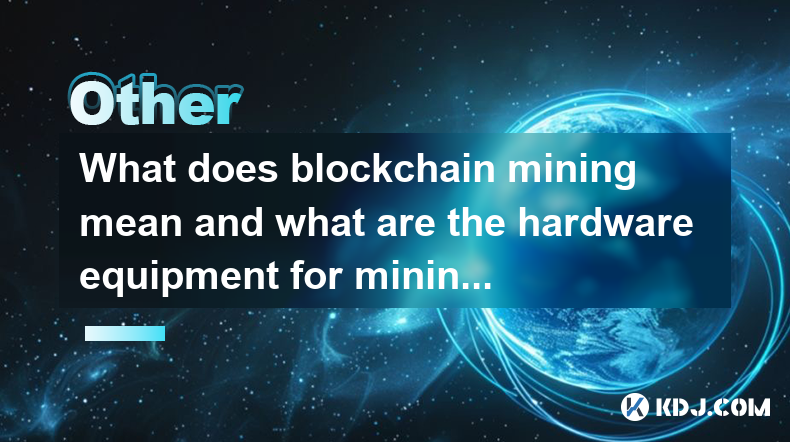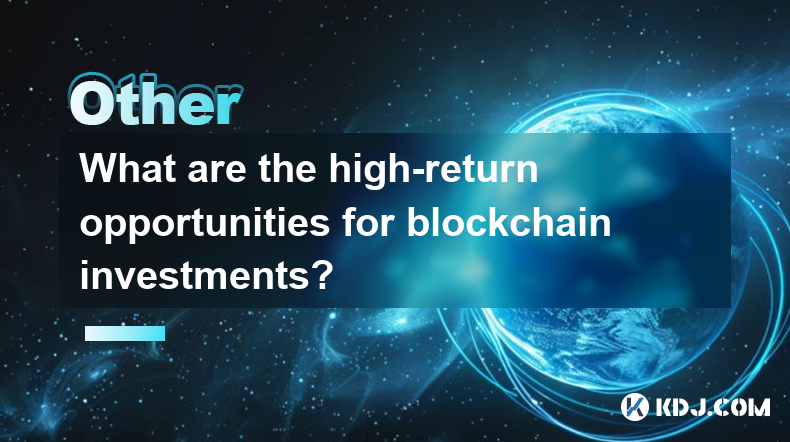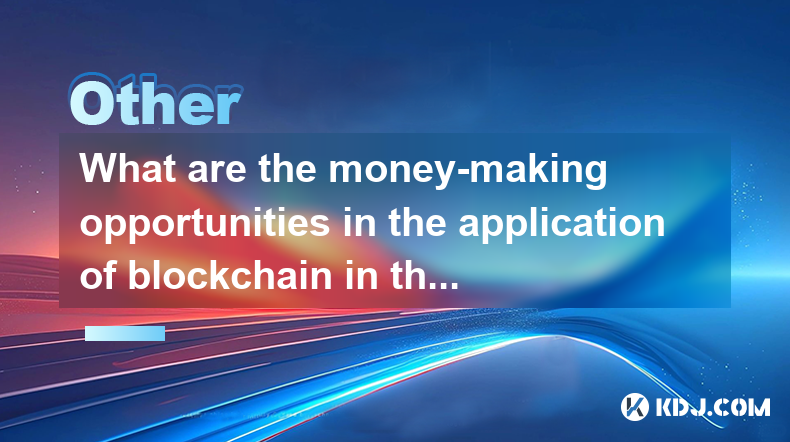-
 Bitcoin
Bitcoin $76,444.7530
-3.77% -
 Ethereum
Ethereum $1,473.8355
-5.46% -
 Tether USDt
Tether USDt $0.9991
-0.08% -
 XRP
XRP $1.7965
-5.51% -
 BNB
BNB $553.4919
-0.36% -
 USDC
USDC $0.9999
-0.02% -
 Solana
Solana $105.2981
-1.74% -
 TRON
TRON $0.2303
0.81% -
 Dogecoin
Dogecoin $0.1422
-4.62% -
 Cardano
Cardano $0.5587
-4.41% -
 UNUS SED LEO
UNUS SED LEO $8.9866
1.01% -
 Toncoin
Toncoin $2.9933
-4.74% -
 Chainlink
Chainlink $10.9113
-4.81% -
 Stellar
Stellar $0.2215
-4.76% -
 Avalanche
Avalanche $16.1163
-3.29% -
 Sui
Sui $1.9371
-3.89% -
 Shiba Inu
Shiba Inu $0.0...01065
-6.69% -
 Hedera
Hedera $0.1469
-3.29% -
 MANTRA
MANTRA $6.2058
-1.53% -
 Dai
Dai $1.0000
0.01% -
 Bitcoin Cash
Bitcoin Cash $269.3457
-2.08% -
 Polkadot
Polkadot $3.3773
-5.87% -
 Litecoin
Litecoin $69.2204
-2.50% -
 Ethena USDe
Ethena USDe $0.9986
-0.01% -
 Bitget Token
Bitget Token $4.0180
-3.25% -
 Pi
Pi $0.5649
-4.50% -
 Hyperliquid
Hyperliquid $11.1928
-2.80% -
 Monero
Monero $195.3885
-4.41% -
 OKB
OKB $50.9235
-0.59% -
 Uniswap
Uniswap $4.7688
-6.95%
What does blockchain mining mean and what are the hardware equipment for mining?
Blockchain mining verifies transactions and adds them to the ledger, using specialized hardware like ASICs, which are efficient but costly and consume significant electricity.
Apr 07, 2025 at 03:14 am

What is Blockchain Mining?
Blockchain mining is the process by which transactions are verified and added to the public ledger, known as the blockchain. This process involves solving complex mathematical problems using computational power. Miners compete to solve these problems, and the first to do so gets to add a new block of transactions to the blockchain. In return, they are rewarded with cryptocurrency, typically in the form of the native token of the blockchain they are mining, such as Bitcoin.
The concept of mining is crucial for maintaining the integrity and security of the blockchain. By requiring computational work to add new blocks, it makes it extremely difficult for any single entity to control or manipulate the blockchain. This decentralized nature is one of the key features that make blockchain technology so revolutionary.
The Role of Miners in the Blockchain Ecosystem
Miners play a vital role in the blockchain ecosystem. They not only verify transactions but also help in maintaining the network's security. By participating in the mining process, they ensure that the blockchain remains tamper-proof and that all transactions are valid. This is achieved through the consensus mechanism, where miners agree on the state of the blockchain.
In addition to transaction verification, miners also contribute to the creation of new coins. For instance, in the Bitcoin network, new bitcoins are created and awarded to miners as a reward for their efforts. This process is known as the block reward. Over time, the block reward decreases, but miners can also earn transaction fees, which are paid by users to prioritize their transactions.
Hardware Equipment for Mining
Mining requires specialized hardware to solve the complex mathematical problems efficiently. Over the years, the hardware used for mining has evolved significantly. Here are the main types of hardware used in blockchain mining:
CPU Mining: In the early days of Bitcoin, mining was done using central processing units (CPUs). However, as the network grew and the difficulty of mining increased, CPUs became impractical for mining due to their low computational power.
GPU Mining: Graphics processing units (GPUs) became the next step in mining hardware. GPUs are much more powerful than CPUs and can handle multiple calculations simultaneously. They were widely used during the early to mid-2010s for mining various cryptocurrencies.
FPGA Mining: Field-programmable gate arrays (FPGAs) are integrated circuits that can be programmed after manufacturing. They offer a good balance between power efficiency and computational power, making them a popular choice for some miners.
ASIC Mining: Application-specific integrated circuits (ASICs) are the most advanced and efficient mining hardware available today. Designed specifically for mining, ASICs offer the highest hash rates and are the preferred choice for mining Bitcoin and other major cryptocurrencies.
Choosing the Right Mining Hardware
Selecting the right mining hardware depends on several factors, including the cryptocurrency you want to mine, your budget, and the expected return on investment (ROI). Here are some considerations to keep in mind:
Hash Rate: The hash rate is a measure of the computational power of your mining hardware. A higher hash rate means more chances of solving the mathematical problem and earning the block reward.
Power Consumption: Mining hardware consumes a significant amount of electricity. It's important to consider the power efficiency of the hardware to ensure that your mining operation remains profitable.
Cost: The initial cost of the hardware is a crucial factor. While ASICs are the most efficient, they are also the most expensive. GPUs and FPGAs offer a more affordable entry point but may not be as efficient.
Compatibility: Ensure that the hardware you choose is compatible with the cryptocurrency you want to mine. Some ASICs are designed specifically for mining certain cryptocurrencies and may not be suitable for others.
Setting Up a Mining Operation
Setting up a mining operation involves several steps. Here's a basic guide to get you started:
Choose Your Cryptocurrency: Decide which cryptocurrency you want to mine. Popular choices include Bitcoin, Ethereum, and Litecoin.
Select Your Hardware: Based on your chosen cryptocurrency, select the appropriate mining hardware. For Bitcoin, ASICs are the best choice, while GPUs are suitable for Ethereum.
Set Up Your Mining Rig: Assemble your mining rig, which includes the mining hardware, a power supply, and cooling systems. Ensure that your setup is well-ventilated to prevent overheating.
Install Mining Software: Download and install the mining software compatible with your hardware and chosen cryptocurrency. Popular mining software includes CGMiner, EasyMiner, and NiceHash.
Join a Mining Pool: Mining solo can be challenging due to the high difficulty level. Joining a mining pool allows you to combine your computational power with other miners, increasing your chances of earning rewards.
Configure Your Wallet: Set up a cryptocurrency wallet to receive your mining rewards. Ensure that your wallet is secure and backed up regularly.
Start Mining: Once everything is set up, start your mining operation. Monitor your performance and adjust as necessary to optimize your mining efficiency.
The Economics of Mining
Mining can be a profitable venture, but it also comes with significant costs. Understanding the economics of mining is crucial for making informed decisions. Here are some key economic factors to consider:
Initial Investment: The cost of purchasing mining hardware and setting up your mining operation is a significant upfront investment. This includes the cost of the hardware, power supply, cooling systems, and other necessary equipment.
Operational Costs: The ongoing costs of mining include electricity, maintenance, and potential upgrades to your hardware. Electricity costs can be particularly high, especially for ASIC miners.
Revenue: Your revenue comes from the block rewards and transaction fees. The amount you earn depends on the cryptocurrency you are mining, the difficulty level, and the efficiency of your hardware.
Return on Investment (ROI): Calculating your ROI involves comparing your total costs against your expected revenue. A positive ROI indicates that your mining operation is profitable, while a negative ROI means you are losing money.
Market Volatility: The cryptocurrency market is highly volatile, and the value of your mined coins can fluctuate significantly. This volatility can impact your profitability and should be factored into your economic calculations.
Environmental Impact of Mining
The environmental impact of blockchain mining is a growing concern. Mining operations consume a significant amount of electricity, contributing to carbon emissions and environmental degradation. Here are some key points to consider:
Energy Consumption: Bitcoin mining, in particular, is known for its high energy consumption. The energy used by Bitcoin miners is estimated to be comparable to that of entire countries.
Renewable Energy: Some mining operations are turning to renewable energy sources, such as solar and wind power, to reduce their environmental impact. This shift towards sustainable energy is crucial for the long-term viability of mining.
Efficiency Improvements: Advances in mining hardware and software are improving energy efficiency. More efficient ASICs and better cooling systems can help reduce the overall energy consumption of mining operations.
Regulatory Pressure: Governments and regulatory bodies are increasingly focusing on the environmental impact of mining. This could lead to stricter regulations and incentives for miners to adopt more sustainable practices.
Future Trends in Blockchain Mining
The future of blockchain mining is likely to be shaped by several key trends. Here are some developments to watch:
Proof of Stake (PoS): Many blockchain networks are transitioning from Proof of Work (PoW) to Proof of Stake (PoS) consensus mechanisms. PoS is more energy-efficient and does not require mining hardware, potentially reducing the environmental impact of blockchain networks.
Decentralized Mining: Efforts are being made to decentralize mining operations further. This includes the development of more accessible mining hardware and software, making it easier for individuals to participate in mining.
Regulation and Compliance: As the cryptocurrency industry matures, regulatory frameworks are becoming more defined. This could impact mining operations, particularly in terms of energy consumption and environmental compliance.
Technological Advancements: Ongoing advancements in mining hardware and software will continue to improve efficiency and reduce costs. This includes the development of more powerful ASICs and better mining algorithms.
Integration with Other Technologies: Blockchain mining is increasingly being integrated with other technologies, such as artificial intelligence and the Internet of Things (IoT). These integrations could lead to new applications and efficiencies in mining operations.
Common Questions Related to Blockchain Mining and Hardware Equipment
Q: What is the primary purpose of blockchain mining?
A: The primary purpose of blockchain mining is to verify and add transactions to the blockchain, ensuring its integrity and security. Miners solve complex mathematical problems to earn the right to add new blocks and are rewarded with cryptocurrency.
Q: What are the different types of hardware used for mining?
A: The main types of hardware used for mining include CPUs, GPUs, FPGAs, and ASICs. CPUs and GPUs are less efficient but more accessible, while FPGAs and ASICs offer higher efficiency and are preferred for mining major cryptocurrencies like Bitcoin.
Q: How do I choose the right mining hardware?
A: Choosing the right mining hardware depends on factors such as the cryptocurrency you want to mine, your budget, and the expected ROI. Consider the hash rate, power consumption, cost, and compatibility with your chosen cryptocurrency.
Q: What are the steps to set up a mining operation?
A: Setting up a mining operation involves choosing your cryptocurrency, selecting and setting up your hardware, installing mining software, joining a mining pool, configuring your wallet, and starting the mining process.
Q: What are the economic considerations for mining?
A: Economic considerations for mining include the initial investment in hardware, ongoing operational costs like electricity, revenue from block rewards and transaction fees, ROI, and the impact of market volatility on profitability.
Q: What is the environmental impact of blockchain mining?
A: Blockchain mining, particularly Bitcoin mining, has a significant environmental impact due to high energy consumption. Efforts are being made to use renewable energy sources and improve efficiency to mitigate this impact.
Q: What are the future trends in blockchain mining?
A: Future trends in blockchain mining include the shift to Proof of Stake, decentralized mining, regulatory changes, technological advancements, and integration with other technologies like AI and IoT.
Disclaimer:info@kdj.com
The information provided is not trading advice. kdj.com does not assume any responsibility for any investments made based on the information provided in this article. Cryptocurrencies are highly volatile and it is highly recommended that you invest with caution after thorough research!
If you believe that the content used on this website infringes your copyright, please contact us immediately (info@kdj.com) and we will delete it promptly.
- "Cardano (ADA) Price Could Dip Below $0.60, Following Previous Market Cycle"
- 2025-04-09 05:10:12
- BONK, the well-known meme coin, has risen over 35% in the last week, attracting meme coin investors in the market. So, what caused this rally?
- 2025-04-09 05:10:12
- Bitcoin (BTC) Investors May Not Exactly Feel It, but BTC Has Been a Relatively Good Bet
- 2025-04-09 05:05:12
- Donald's Bitcoin (DONBTC) Could Turn Early Investors into Multi-Millionaires, Like Shiba Inu (SHIB) and Dogecoin (DOGE) Did
- 2025-04-09 05:05:12
- 6 Upcoming Kraken Listings That Could Be the Next Big Thing in Crypto
- 2025-04-09 05:00:13
- COTI Unveils New Privacy-Focused Blockchain to Reshape Web3 Transactions
- 2025-04-09 05:00:13
Related knowledge

Is the ranking of Chinese blockchain apps real and reliable?
Apr 04,2025 at 09:01pm
The ranking of Chinese blockchain apps has become a topic of interest for many in the cryptocurrency community, as it provides insights into the popularity and adoption of blockchain technology within China. However, the reliability and authenticity of these rankings are often questioned. This article aims to delve into the factors that influence these ...

What are the future development trends of blockchain game development?
Apr 03,2025 at 05:00am
Blockchain technology has revolutionized various industries, and gaming is no exception. As we look to the future, several trends are set to shape the development of blockchain games. These trends not only promise to enhance the gaming experience but also to integrate blockchain technology more seamlessly into the gaming ecosystem. Let's explore these t...

What are the high-return opportunities for blockchain investments?
Apr 05,2025 at 02:35pm
Blockchain technology has revolutionized the financial world, offering numerous high-return investment opportunities. These opportunities span various sectors within the cryptocurrency ecosystem, including cryptocurrencies, decentralized finance (DeFi), non-fungible tokens (NFTs), and blockchain startups. Each of these areas presents unique risks and re...

What are the maintenance costs of blockchain system development?
Apr 03,2025 at 06:07pm
The maintenance costs of blockchain system development are multifaceted and depend on various factors. These costs can include technical maintenance, security updates, infrastructure expenses, and personnel costs. Understanding these elements is crucial for anyone planning to develop or maintain a blockchain system. Technical MaintenanceTechnical mainte...

What are the money-making models of blockchain games?
Apr 04,2025 at 02:00pm
Blockchain games have emerged as a revolutionary way for players to earn real money while enjoying their favorite pastime. These games leverage the power of blockchain technology to create unique money-making models that benefit both the players and the developers. In this article, we will explore the various money-making models of blockchain games and ...

What are the money-making opportunities in the application of blockchain in the field of Internet of Things?
Apr 05,2025 at 10:35pm
The integration of blockchain technology with the Internet of Things (IoT) presents numerous money-making opportunities. Blockchain, with its decentralized and secure nature, can revolutionize how IoT devices interact, manage data, and conduct transactions. This article will explore various avenues where entrepreneurs, developers, and investors can capi...

Is the ranking of Chinese blockchain apps real and reliable?
Apr 04,2025 at 09:01pm
The ranking of Chinese blockchain apps has become a topic of interest for many in the cryptocurrency community, as it provides insights into the popularity and adoption of blockchain technology within China. However, the reliability and authenticity of these rankings are often questioned. This article aims to delve into the factors that influence these ...

What are the future development trends of blockchain game development?
Apr 03,2025 at 05:00am
Blockchain technology has revolutionized various industries, and gaming is no exception. As we look to the future, several trends are set to shape the development of blockchain games. These trends not only promise to enhance the gaming experience but also to integrate blockchain technology more seamlessly into the gaming ecosystem. Let's explore these t...

What are the high-return opportunities for blockchain investments?
Apr 05,2025 at 02:35pm
Blockchain technology has revolutionized the financial world, offering numerous high-return investment opportunities. These opportunities span various sectors within the cryptocurrency ecosystem, including cryptocurrencies, decentralized finance (DeFi), non-fungible tokens (NFTs), and blockchain startups. Each of these areas presents unique risks and re...

What are the maintenance costs of blockchain system development?
Apr 03,2025 at 06:07pm
The maintenance costs of blockchain system development are multifaceted and depend on various factors. These costs can include technical maintenance, security updates, infrastructure expenses, and personnel costs. Understanding these elements is crucial for anyone planning to develop or maintain a blockchain system. Technical MaintenanceTechnical mainte...

What are the money-making models of blockchain games?
Apr 04,2025 at 02:00pm
Blockchain games have emerged as a revolutionary way for players to earn real money while enjoying their favorite pastime. These games leverage the power of blockchain technology to create unique money-making models that benefit both the players and the developers. In this article, we will explore the various money-making models of blockchain games and ...

What are the money-making opportunities in the application of blockchain in the field of Internet of Things?
Apr 05,2025 at 10:35pm
The integration of blockchain technology with the Internet of Things (IoT) presents numerous money-making opportunities. Blockchain, with its decentralized and secure nature, can revolutionize how IoT devices interact, manage data, and conduct transactions. This article will explore various avenues where entrepreneurs, developers, and investors can capi...
See all articles






















































































